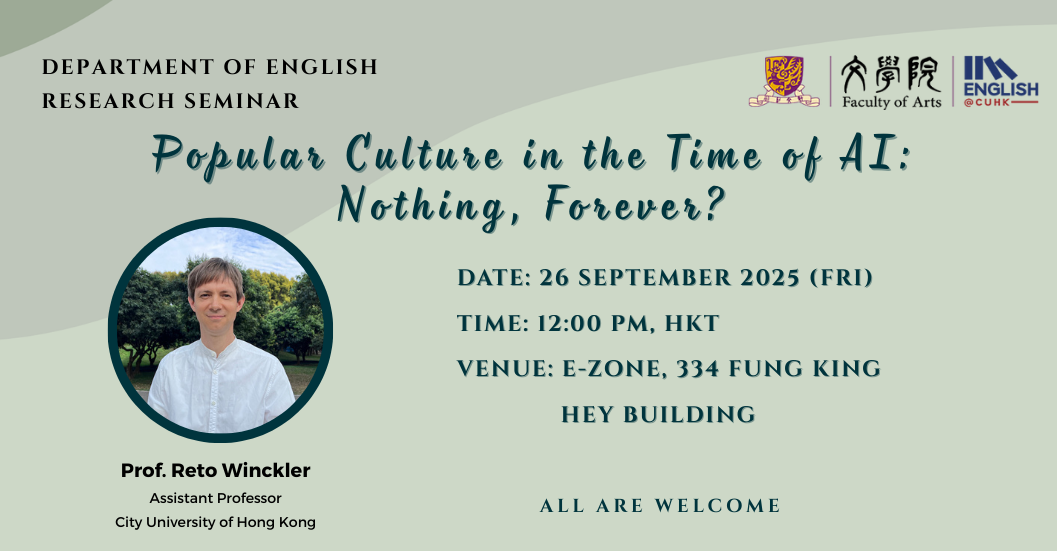Popular Culture in the Time of AI: Nothing, Forever?
Abstract
In the streaming sitcom Nothing, Forever (Hartle and Habersberger, Twitch, 2022-present), four pixely cartoon characters perform ChatGPT-generated scripts 24 hours a day in an endless, automated loop. The series was originally conceived as a parodical adaptation of the US sitcom Seinfeld (Larry David and Jerry Seinfeld, NBC, 1989-1998). In this paper, I will seek to show that Nothing, Forever provides an ideal vehicle for thinking through some of the implications of GenAI for the future of art and popular culture. The streaming series retains several of the conventions of the traditional multicam sitcom, one of television’s most durable, best-loved and most-criticized genres: a stable set of characters, a fixed ‘situation’ that defines the characters relation to each other and gives rise to most of the jokes, and an accordingly formulaic, repetitive style and narrative structure. A comparative reading of Nothing, Forever and its source sitcom Seinfeld reveals how Nothing, Forever’s partly AI-produced, procedurally generated format distills these stylistic elements of traditional sitcom, which on Seinfeld itself are in fact often ironized, lampooned or ignored, into an abstracted generic product from which most specificity has been drained. Yet a closer look at the history of both the production and reception of Nothing, Forever suggests that, as with GenAI in general, the material traces of the series’ source data and implementing algorithm remain a source of considerable (and sometimes problematic) variability, while the various ways in which the series has been interpreted by its audiences allows for insights into how meaning is created in the interplay between automated generation and human reception.
Bio
Reto Winckler is assistant professor in the Department of English at City University of Hong Kong. He received his PhD from the Chinese University of Hong Kong in 2018. His research focuses on Shakespeare, adaptation studies (particularly in television series and digital media) and contemporary popular culture. His articles have been published in Shakespeare, Adaptation, The Journal of Popular Culture, Texas Studies in Literature and Language, The Journal of Adaptation in Film and Performance, and Cahiers Élisabéthains. He is a member of the editorial boards of Shakespeare and Adaptation. He is also the co-editor of Television Series as Literature (Palgrave, 2022) and the forthcoming “This America, Man:” The Literary and Cultural Origins of 21st-Century American Television Series (Brill, 2026).







